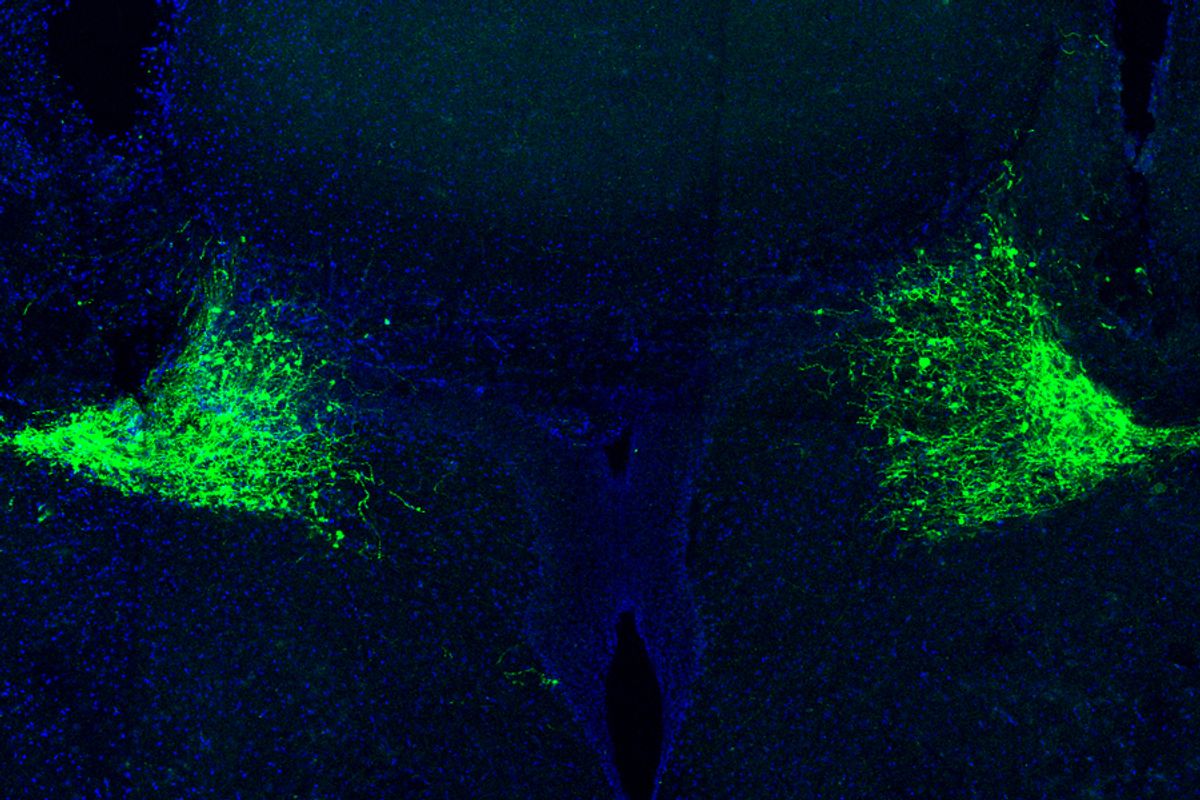
Surprise! Whether unexpectedly confronted with a birthday cake, a snarling dog, or an emergency alert, brains sometimes have precious little time to take in the surroundings and assess the best possible responses. A paper published Wednesday in Nature finds that, in mice, startling stimuli cause the locus coeruleus to release norepinephrine (also known as noradrenaline), aiding in the brain’s ability to focus and learn in the moment. Norepinephrine has long been known for its role in the fight or flight response, and this study shows that its contributions to neuromodulation are more widespread throughout the brain than previously appreciated.





